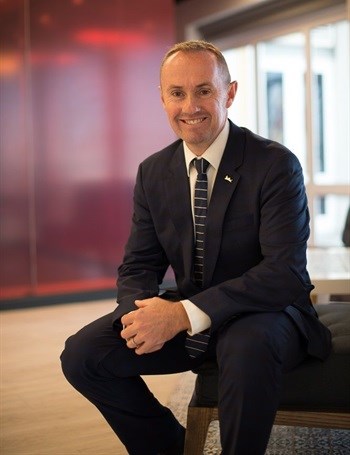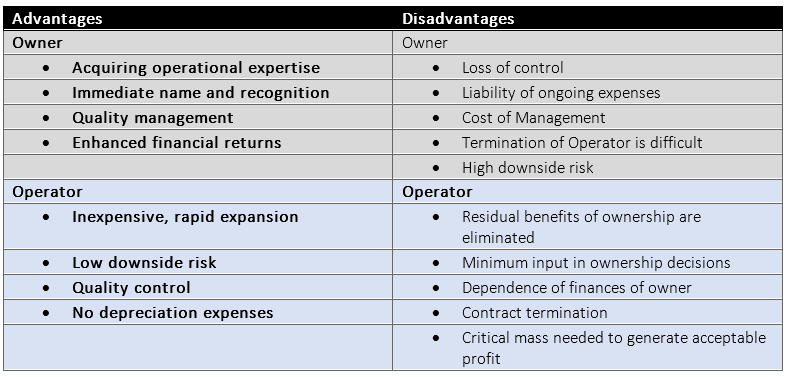
Top stories

Marketing & MediaStranger Things extends record run as all 5 seasons dominate Netflix Top 10
10 hours


RetailDiageo sells East African Breweries stake to Asahi for $2.3bn
Duncan Miriri and Emma Rumney 22 Dec 2025



The principal of the management agreements hasn’t really changed. It came from the US, was then brought into Asia and was adopted in Africa quite successfully. In Africa, it’s more about educating the hotel owner about what a management contract is. Their initial understanding of a management contract is a franchise which is something they are not in favour of as this would mean they would be required to run the hotel.
Under a management contract, we do the all the day-to-day management, marketing and administrating of the hotel for the owner under our brand for an agreed fee. We are aligned to revenue and profit. Under a franchise or marketing contact the owner gets the brand on top of the hotel building and plugs into our sales and reservations systems but they are left alone to run the hotel. Therefore, we spend a lot of time initially getting our owners to understand the principals of a management contract long before we start negotiations.
When entering a management agreement, it vital that it is fair for both parties. The average length of a management contract is 20 years (statically longer than most marriages) so you both need to be happy contractually. When you negotiate a contract with an owner, in Africa, they are often a first-time hotel investor/owner. As such, they don't really know much about the industry. 10 years down the line and well into hotel operation, your owner will have become an expert on how the industry works. If you’ve taken advantage of their inexperience and negotiated an unfair contract, in the early years while the owner did not have enough knowledge of the industry, the owner will become disgruntled and you can end up having a difficult future relationship. Ideally, would like to renew our agreements or operate more hotels with the same owner.
Within our company, about 60% of our hotels are with multiple hotel owners. This means they are typically hotel owners who have a management agreement with us and are happy with the performance of their hotel and agreement structure, the working relationship works for them and they decide to do more hotel deals with us.
Below are the advantages and disadvantages for a hotel owner and hotel operator to consider:

The principals of the management contracts are very much the same. 80% of the contract would be exactly the same. It’s more about the owner class. In Africa, and in most emerging markets, the owner is often a net-wealth private individual who wants to invest in the hotel industry and they want to own the hotel. They are long term hotel real estate owners with a mindset of never really selling the hotel. In mature markets like Europe and the US, we find hotels trade frequently and the owner class is often property or pension funds that are investing in hotel real estate because they have identified hotel real estate as a real estate class that can outperform other real estate classes such as offices and retail at times so it’s important to have hotels in their overall portfolio.
In Africa, we’re dealing with a lot more first-time hotel owners who have the desire and an ambition to own a hotel in their home country or city. They don’t know how big the hotel should be, what star level it should be and what sort of facilities it needs and most importantly what the market demands. So, besides providing a management contract, we play an active role early on in guiding, advising and assisting the owner with conceptualising what the hotel should offer based on market demand. We help them decide what star level of hotel it should be and what the best brand within our portfolio for that hotel is, as well as the facilities the hotel should have that would make it sustainable over the long-term and provide the best return on their investment.
Once the hotel building has been built, the hotel is going to live longer than the agreement so it is important that one builds a hotel that has relevance and longevity.
An emerging market net-wealth private individual hotel owner may not be looking at the same terms and conditions as a real estate or pension fund. The funds have very little emotion or personal influence when making a business decision. They are purely looking at the yield on that particle piece of hotel real estate. This doesn’t mean the net-wealth private individual is not investing to make a good return, however, a little bit of a return on ego can creep in and developing a hotel is quite an emotional rollercoaster ride. They want to have a little bit of their personality form part of the hotel experience even if it costs a little bit more.
What I have seen with hotel developments in Africa, especially if it’s a with a net-wealth private individual, building hotels becomes like a drug – once you do one you want to do more. It’s far more exciting developing and owning a hotel than developing an office building or industrial space.
What has happened over the last few years from a management contract point of view, is that if the hotel owner has a bank loan, the bank that’s providing debt funding to the hotel wants more of a say in the terms and conditions in the management contract. So, the management contract is more aligned with the debt provider, hotel owner, and operator. There are certain new terms and conditions put in place to give the lender satisfaction because they often provide 60% to 70% of the capital that goes into the hotel development, so that they are heavily invested and need to be comfortable with the management agreement between the hotel owner and hotel operator.
Carlson Rezidor has not changed its business model in SA, however, what has happened in the industry is that some of our competitors have struggled to break into the SA market and they have, thus, chosen to provide a hybrid model to try and change that. Because it’s a competitive landscape, competitors might offer an owner more to convince them to select their company and brand. Some of our competitors with Middle East lead offices have tried to apply a cut and paste deal approach in Africa, however, the hotel industry is smaller and not as sophisticated so we do not believe it is sustainable so we choose not to follow – we offer very fair long-term agreements and we have vast experience in this market and we still have a good pipeline of hotel deal flow still coming through.
So, the management agreement is the same as the business philosophy remains the same – like baking a cake, the fundamentals will be the same, but the ingredients might be a bit different. Per brand, we have very clear brand standards. From a development and construction point of view, to make sure that each hotel meets a particular brand’s standards. From an operations point of view, we have a brand promise – depending on whether a guest stays at a Park Inn by Radisson or a Radisson Blu, we need to make sure that there are brand promises that we provide that guest. It’s very important that we keep the operating model within that brand standard so that we make sure we don’t have a Park Inn by Radisson starting to provide Radisson Blu services because that will ultimately have an impact on the bottom line. That doesn’t really affect the management contract, but we have very clear operating manuals that make sure that each hotel is compliant to its brand standards.